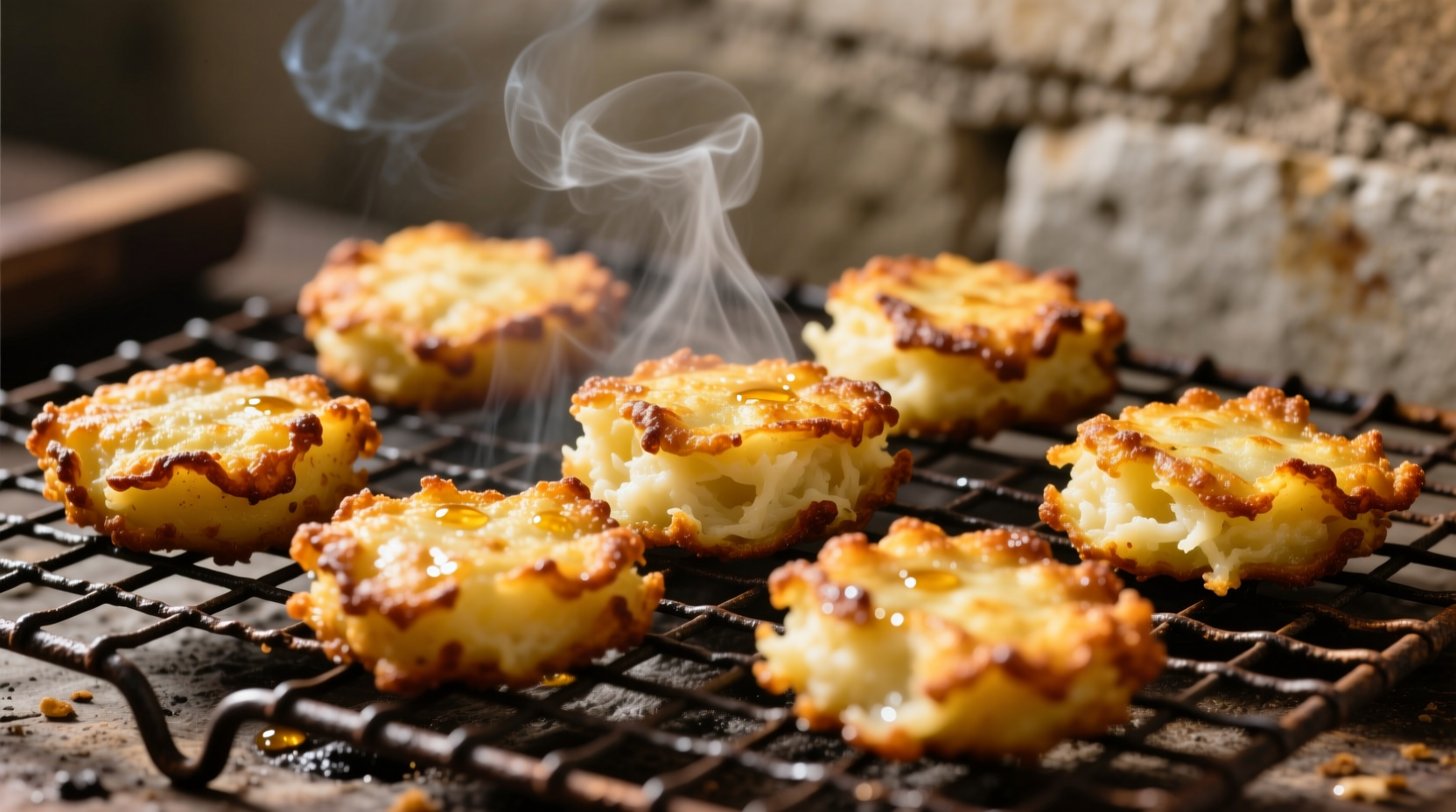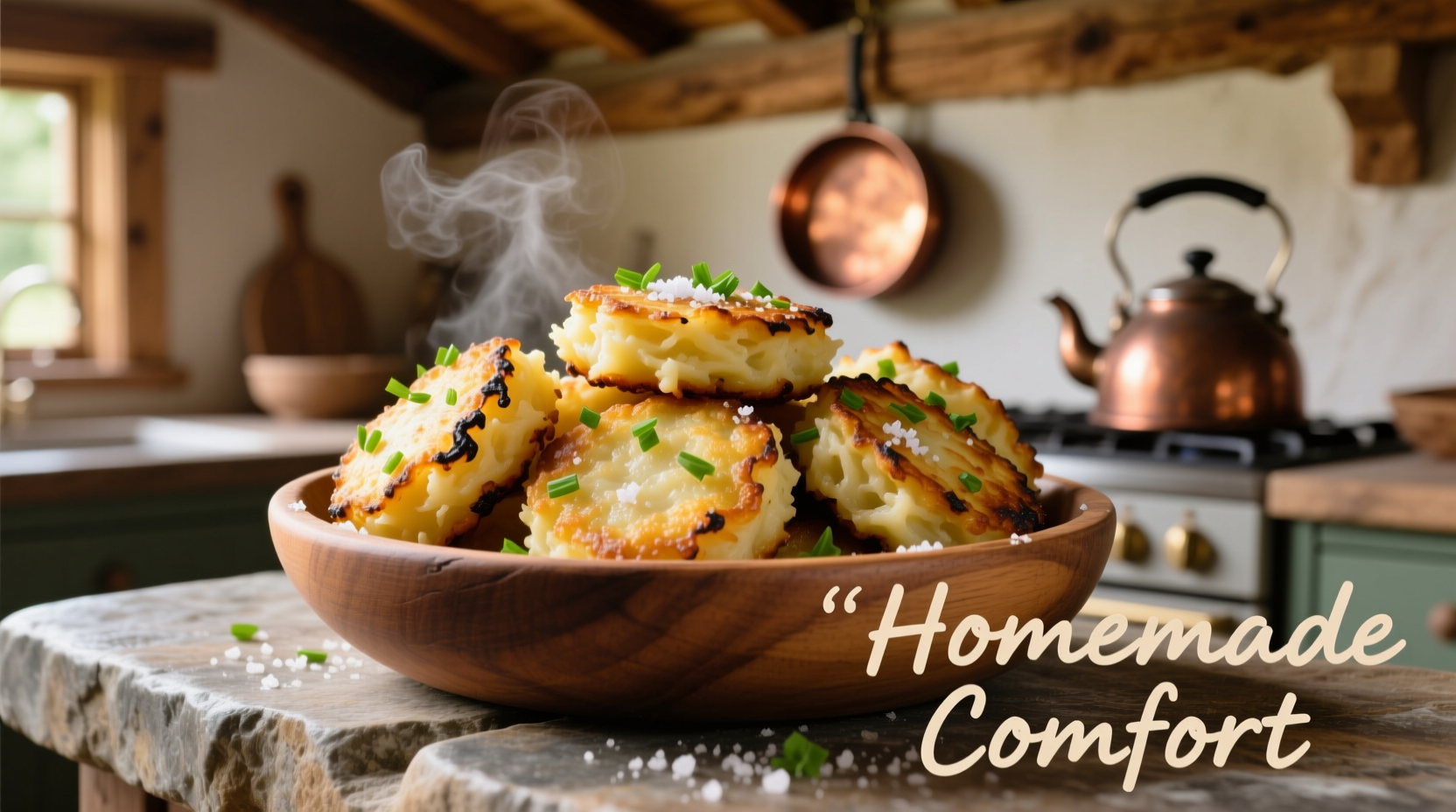Nothing beats the satisfying crunch of a perfectly fried mashed potato fritter giving way to a tender, flavorful interior. This versatile recipe solves the common problem of leftover mashed potatoes while delivering restaurant-quality results with simple ingredients and techniques anyone can master.
Why This Mashed Potato Fritters Recipe Works
Most failed fritter attempts stem from improper moisture control and oil temperature. Our tested method addresses both issues through precise measurements and visual indicators that guarantee success:
- Perfect binder ratio - 1 egg per 2 cups of potatoes prevents dryness while maintaining structure
- Moisture control - Refrigerating mixture for 30 minutes firms up patties before frying
- Oil temperature science - Maintaining 350°F creates instant crust formation that seals in moisture
Essential Ingredients for Crispy Mashed Potato Fritters
The quality of your base mashed potatoes significantly impacts the final result. Use these guidelines for optimal fritter foundation:
| Ingredient | Amount (per 2 cups potatoes) | Critical Purpose |
|---|---|---|
| Cold mashed potatoes | 2 cups | Base structure (must be refrigerated overnight) |
| Egg | 1 large | Binder that sets during frying |
| All-purpose flour | 3 tablespoons | Creates crisp exterior crust |
| Green onions | 2 tablespoons, finely chopped | Flavor without excess moisture |
| Salt | 1/2 teaspoon | Enhances overall flavor profile |
Step-by-Step Fritter Making Process
Preparation Phase: Setting Up for Success
Proper preparation prevents common fritter failures. Follow these critical steps before mixing:
- Verify potato consistency - Your mashed potatoes should hold shape when scooped, not runny. If too moist, spread on baking sheet and refrigerate uncovered for 1 hour.
- Chill ingredients - Cold mixture holds shape better during frying. Refrigerate potatoes overnight if possible.
- Prepare equipment - Use cast iron or heavy-bottomed skillet with thermometer. Line baking sheet with paper towels and wire rack.
Mixing & Forming: Achieving Perfect Texture
Avoid overmixing which creates dense fritters. Follow this sequence:
- Gently fold egg into chilled potatoes until just incorporated
- Mix in flour and seasonings with minimal handling
- Refrigerate mixture for 30 minutes to firm up
- Form 1/4 cup portions into 3/4-inch thick patties using ice cream scoop
Frying Technique: The Temperature Secret
Oil temperature control makes or breaks your fritters. This USDA-recommended method (Thermometer Guide) ensures food safety and perfect texture:
- Heat 1/2 inch oil to 350°F in heavy skillet
- Fry 3-4 patties at a time without crowding
- Cook 3-4 minutes per side until deep golden brown
- Drain on wire rack (not paper towels alone) to maintain crispness

Historical Evolution of Potato Fritters
Potato fritters have evolved significantly since potatoes were introduced to Europe. Understanding this timeline helps appreciate their versatility:
- 1570s - Potatoes arrive in Spain from South America, initially grown as ornamental plants
- 1700s - French chefs develop early potato pancake recipes using grated potatoes
- 1840s - Irish immigrants create potato boxty using mashed potatoes during famine
- 1940s - American home cooks begin repurposing Thanksgiving leftovers into fritters
- Present day - Global variations incorporate local flavors from Korean gamja-jeon to Indian aloo tikki
When Mashed Potato Fritters Work Best (And When They Don't)
Understanding these scenario limitations prevents disappointment. Based on culinary research from the Culinary Institute of America (Culinary Techniques):
- Ideal for: Using leftover mashed potatoes (especially from Yukon Gold or Russet varieties), brunch menus, vegetarian appetizers, holiday leftovers transformation
- Not recommended for: Instant mashed potatoes (too much stabilizer), sweet mashed potatoes with added sugar, potatoes with excessive gravy or butter content
- Special consideration: Gluten-free versions require rice flour and additional egg binding - expect slightly less crisp exterior
Troubleshooting Common Fritter Problems
Fix these issues before they happen with our professional solutions:
| Problem | Immediate Fix | Prevention for Next Time |
|---|---|---|
| Fritters fall apart | Add 1 tbsp flour to mixture | Refrigerate mixture 30+ minutes before forming |
| Soggy exterior | Increase oil temp to 365°F | Use wire rack for draining, not just paper towels |
| Raw center | Lower oil temp to 340°F | Make thinner patties (1/2 inch) |
| Greasy texture | Blot excess oil immediately | Maintain consistent 350°F oil temperature |
Flavor Variations to Elevate Your Fritters
Professional chefs use these tested combinations to create signature dishes:
- Cheesy herb - 1/4 cup shredded cheddar + 1 tbsp fresh dill + 1 minced garlic clove
- Breakfast style - 2 tbsp crumbled bacon + 1/4 cup shredded gruyere + pinch of cayenne
- Spicy southwest - 2 tbsp pickled jalapeños + 1 tsp cumin + 1/4 cup corn kernels
- Classic European - 2 tbsp chopped fresh parsley + 1 tsp lemon zest + 1/4 cup finely diced shallot
Serving and Storage Guidelines
Follow these evidence-based recommendations from food safety experts (USDA Leftovers Guide):
- Immediate serving: Pair with sour cream, applesauce, or smoked salmon for balanced flavor
- Short-term storage: Keep in airtight container in refrigerator for up to 3 days
- Reheating method: 350°F oven for 10-12 minutes (not microwave) preserves crispness
- Freezing: Freeze uncooked patties on baking sheet, then transfer to freezer bag for up to 2 months











 浙公网安备
33010002000092号
浙公网安备
33010002000092号 浙B2-20120091-4
浙B2-20120091-4